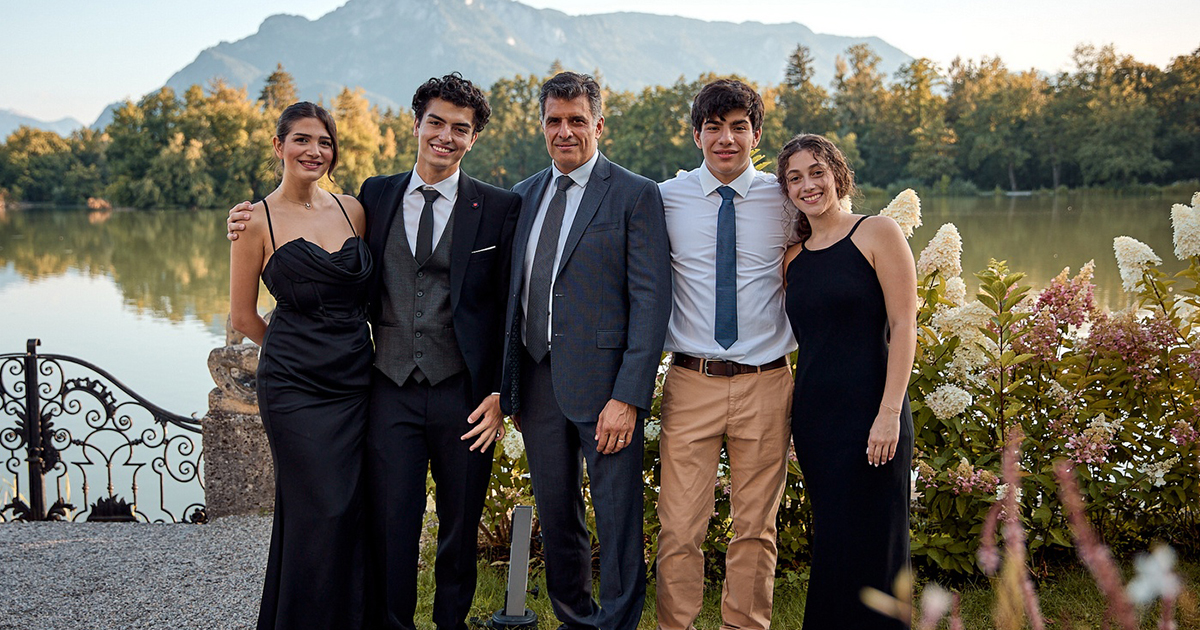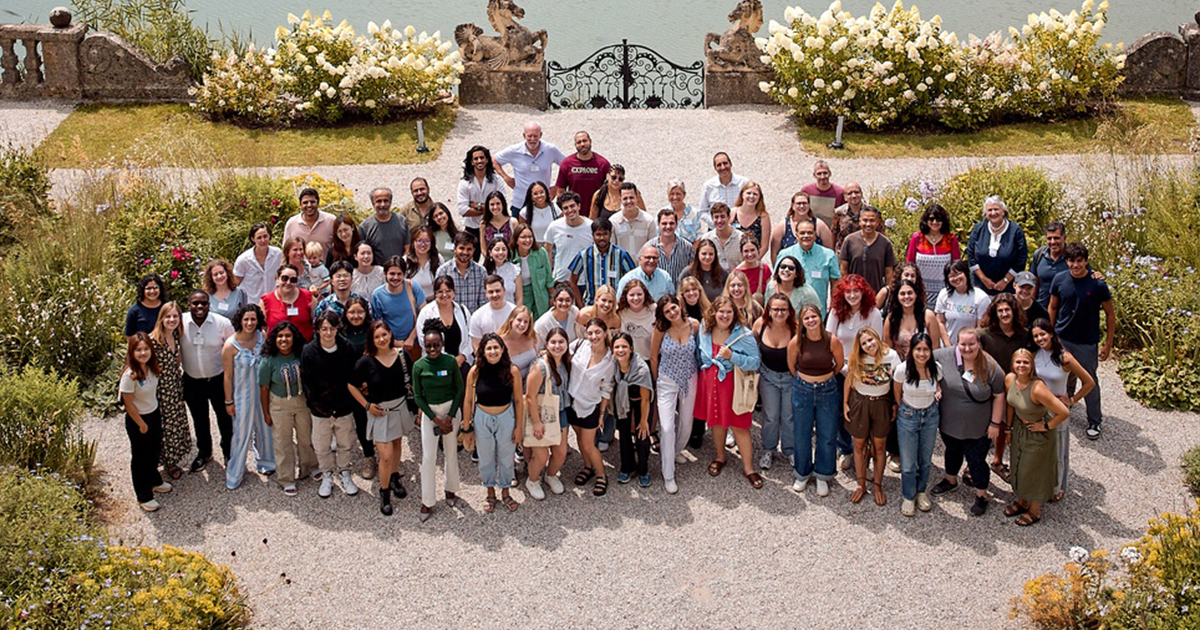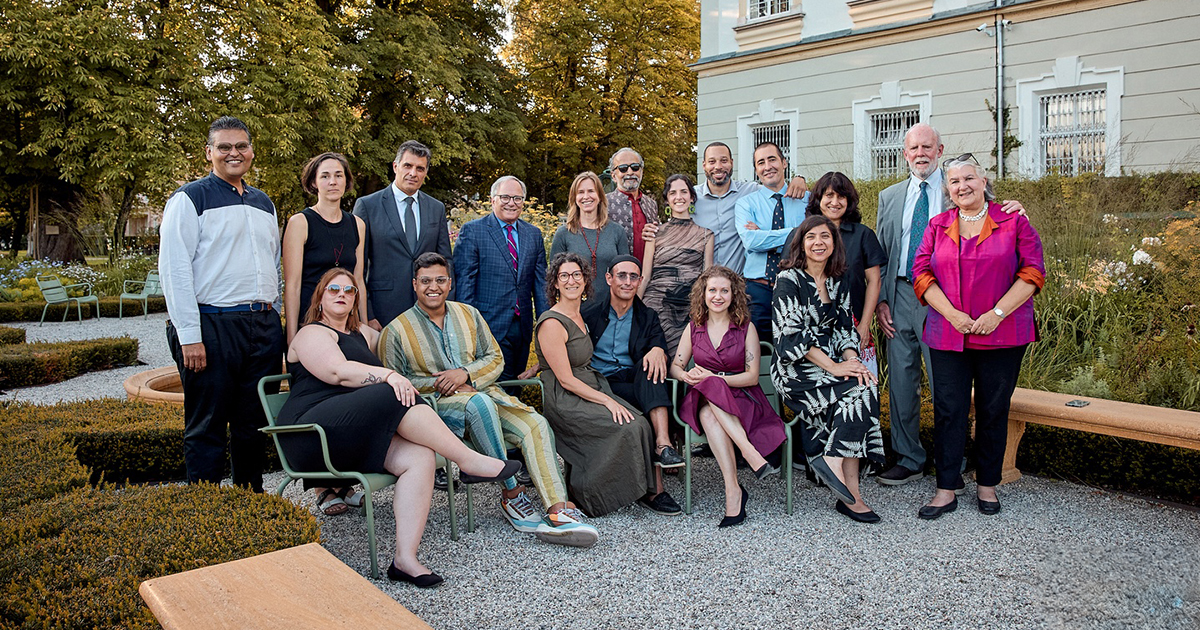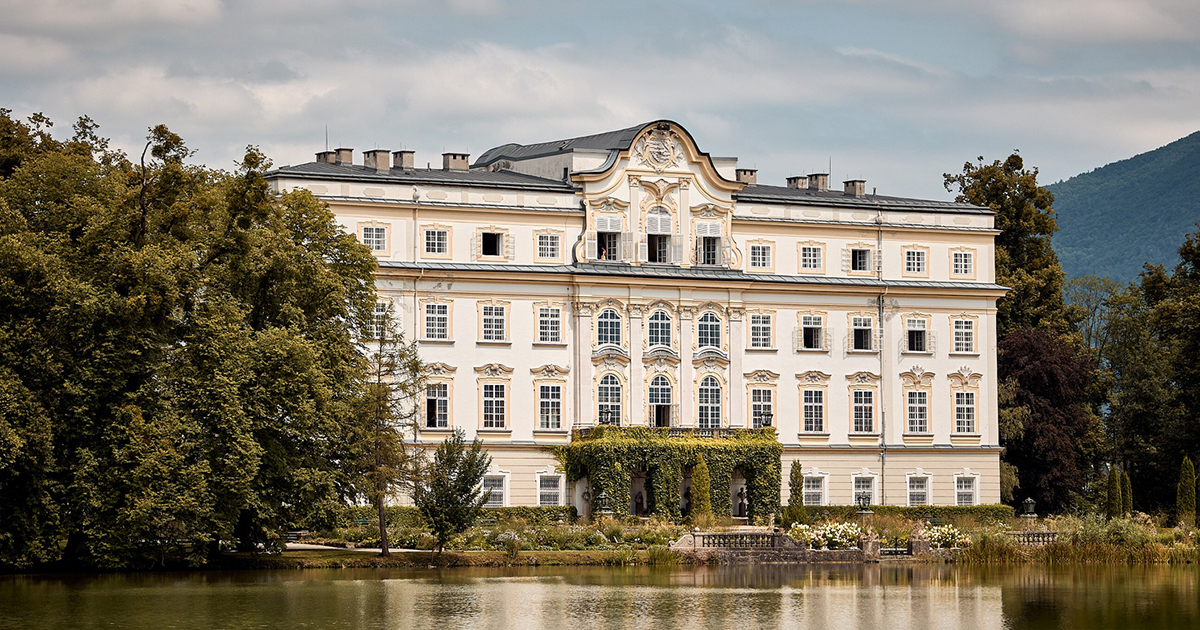Salzburg Academy Tackles Belonging in an AI World
LAU students explore the media’s role in fostering belonging and social cohesion amid the rise of digital platforms and AI.
Digital platforms, artificial intelligence (AI) and the spread of automated systems are redefining how people connect, communicate and find a sense of community. As these technologies transform social interactions, they raise important questions about the nature of human belonging in an era increasingly shaped by machines.
To address this critical issue, the 16th in-person Salzburg Academy on Media and Global Change brought together emerging media leaders worldwide to examine how media can foster belonging and strengthen social cohesion in the face of these technological changes. This marked the academy’s return after a COVID-19 hiatus to resume its mission of equipping participants with media literacy tools that promote civic-minded leadership.
This year’s theme, “Belonging in the Age of Machines,” brought four LAU students together with more than 80 participants at Schloss Leopoldskron in Salzburg, Austria, where they worked with media professionals, creative practitioners, researchers and community stakeholders to rethink how media systems can enhance social belonging instead of deepening alienation.
Through workshops and sessions, the participants collaborated over two weeks, from July 15 to 31, to find media solutions that can support inclusive societies, particularly in a field where the rise of AI and social platforms have raised concerns about misinformation, disinformation and the erosion of civic discourse.
“The issue of belonging both culturally and ideologically is a matter that intersects with every problem in our globalized world, which now seems to be breaking down, reshuffled or changed,” said Dr. Jad Melki, professor and director of LAU’s Institute of Media Research and Training at the School of Arts and Sciences.
Dr. Melki, who is also a visiting faculty at the Salzburg Academy, added that this theme helps the students better understand and situate themselves within the complex and ever-changing state of living, as well as work together toward their nation’s interests and ultimately a more just world.
While media and popular culture often paint dystopian visions of a technological future, a key part of the program was reexamining how care and human values can be integrated into the development of “thinking” technologies, given that automated systems continue to learn from human behavior.
The participants’ collective efforts culminated in a publication titled Love Against the Machine: Imagining Soulful Media Futures, which features creative approaches to making AI more human-centric. These include projects like the MINT device, which enhances music experiences and promotes fair treatment for artists, and the RÊVE, an AI-powered space designed for equitable access to art. They also introduced iPatch, a platform focused on public interest advertising for global solidarity; Current. Magazine, which emphasizes inclusivity and sustainability; and Alexandria, a social media platform facilitating interaction between humans, AI and nature.
Reflecting on his time in Salzburg, LAU Nutrition and Dietetics student Anthony Moussaed said that it inspired him to commit “to advocating for human rights and ethical practices,” and stand against the forces “that could lead to various forms of violence present today.”
It heightened his sense of empathy and the importance of supporting marginalized communities, both professionally and personally, he added.
According to Dr. Melki, participating in international programs is essential for students as it significantly broadens their horizons and exposes them to diverse ideas and cultures while facilitating valuable networking opportunities.
The program “taught me that there is so much in life that I still haven’t even discovered or learned about,” said Multimedia Journalism graduate Lana Najdi (BS ’23). The exposure to a range of ideas and multinational individuals not only enhanced her grasp of contemporary global issues but also her perspective. “I felt like I was reborn as both a journalist and an activist,” she added.
“This is especially true at an academy that fosters a hyper-diverse environment and daily interactions with faculty from around the globe who enrich the experience further,” said Dr. Melki, noting how these distinguished academics often serve as mentors who can later guide students in their graduate studies, future research and academic opportunities.
In light of this, the academy remains a vital space for the development of emerging media leaders. For participants from LAU and beyond, Dr. Melki hopes that students continue to benefit from this program and create pathways to meaningful, socially conscious practices that will resonate in their careers for years to come.



